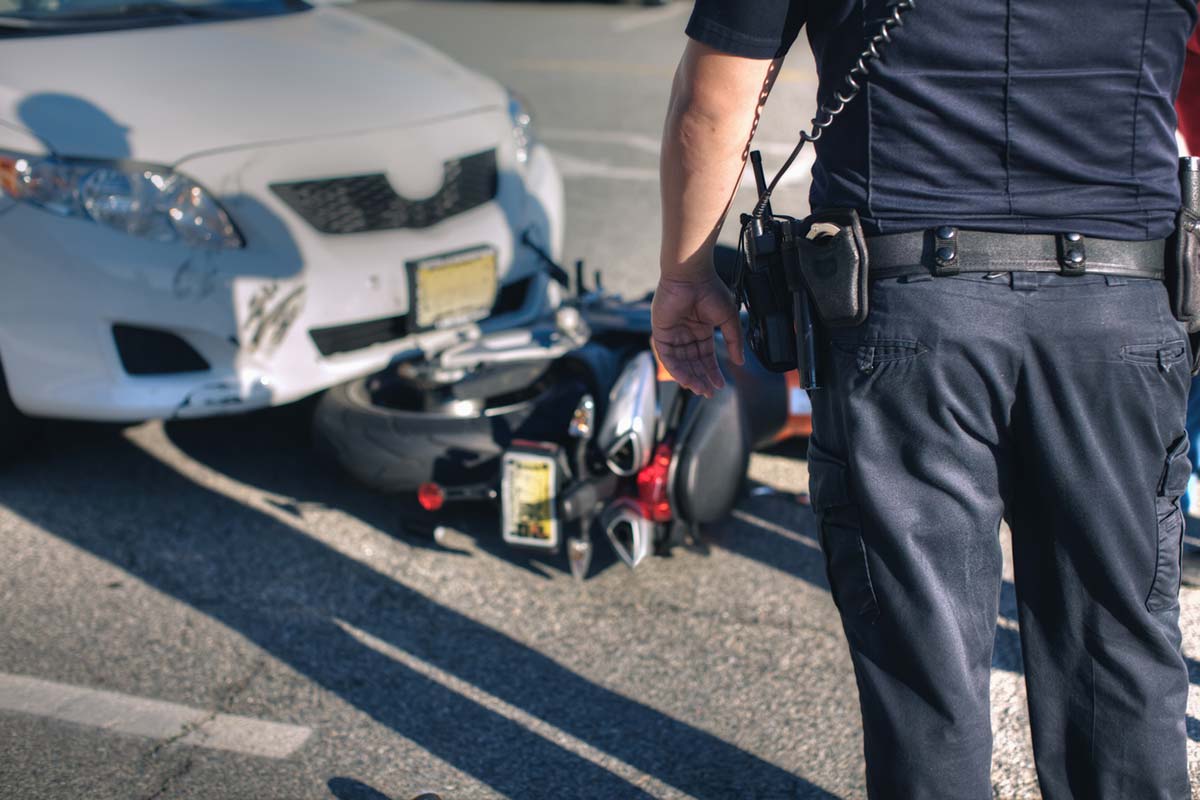It can be very difficult to assess how injured you are directly in the aftermath of an accident. Because, unless you know it’s a very severe collision where people are unconscious, or people are bleeding or have broken bones, then a lot of times your body is going to experience an injury that you’re just not able to necessarily assess that at the moment, that the collision occurs or directly after.
And again, that’s because your adrenaline is pumping. And kind of, all those emotions are flowing and the way our bodies function is it just kind of puts those injuries which we typically associate with collision, such as whiplash or bruising, soreness. Sometimes people have knee and ankle injuries, they don’t recognize and immediately because they brace. They may see the other car coming, but not have time to respond, so they may brace in the vehicle and that can lead to collision. And another area where we unfortunately see some rather serious injuries that aren’t initially diagnosed are traumatic brain injury.
So what we say we mean … traumatic brain injury means, that you’ve suffered a concussion. And if you think about it, it’s not that surprising that in a collision you might suffer a concussion, particularly if the collision is one where it’s a head on collision or somebody is T-boned or even in a rear end collision where the whiplash is severe enough. We’re recognizing now that even heading a ball during a soccer game, can change brain development and can cause concussion. So if you can imagine that kind of impact could result in a concussion, you can also … it’s not far fetched to think that if you are hit by a moving vehicle, that, that’s going to also result in serious injury, in terms of a concussion.
And the really sneaky things about concussions is, can be very difficult to recognize some of the symptoms of concussion until at least 36 or 48 hours later. And some of the things to look for, I am not a medical doctor, but I can tell you some of the general things to look for in terms of a concussion, are headaches, forgetfulness, difficulty sleeping, problems focusing, having to repeat the same task. Those sorts of things, are good indicators of a concussion. And what you’re going to want to do if you’re starting to experience those symptoms or even increased soreness over a day or two after a collision, is you’re going to want to seek appropriate medical treatment.
And that may be with your physician. That may be going to the emergency room. But, whatever seems appropriate, given your particular circumstances, you’re going to want to seek that treatment, and the sooner you seek that treatment related to the timing of the collision, the more likely that the at fault party is going to be responsible for that medical treatment. So let’s talk about briefly what we mean when we say the at fault party, who is really paying here. In almost every car wreck case, the check that’s written to resolve the case, or is a part of a judgment if the case is tried to a jury is paid by the insurance company.
This is not something that is generally paid out of the at fault driver’s pocket. They are not necessarily personally responsible for making that payment. And so a lot of times I have people coming to me and say, “Well, you know, I don’t want to cause an undue hardship to the person that hit me.” And that’s a really admirable position to have, but it’s really not about causing them a hardship. It’s about making the injured party whole. And the way we do that is through payment for your physical injuries, and your pain and suffering.
And so the good thing to know about that is that in Tennessee you’re required to have insurance to drive a vehicle, and the insurance is generally the responsible party that is paying for the injured party’s damages. So you don’t have to worry that you’re necessarily going to be causing an undue hardship on the outdoor parties family or anything like that. The other thing to know about what to do in terms of a collision is, for instance, recently I know someone who was hit by a hit and run collision.
And so the important thing to know about that is even if the at fault party does not have insurance or they fled the scene, if you have insurance, you typically have what is called uninsured or underinsured motorist. And this is insurance coverage that is designed to protect you from other people who do not have insurance, so that your claims can still have a way of seeking recovery. And so that’s something that I generally advise clients. A lot of times people will come in and saying, “Well, the person that hit me did not have any motor vehicle insurance.” And so, I’ll say, “Well, do you have motor vehicle insurance?”
And you know, the client will say, yes I do. And I’ll say, “Well, let’s confirm that you have uninsured motorists, which is generally in Tennessee as a package deal if you’ve got third party insurance, then you also have your uninsured motorist.” And so you would use that, basically, that uninsured motorist policy steps into the shoes of the at fault driver. And that’s how you can recover, in a situation where you’re either hit by someone that doesn’t have insurance or the person leaves the scene, or they don’t have enough insurance coverage. Contact us if you have been in an accident and need help.
*This is a transcript of the Facebook Live video from 6-21-18 Click here to watch the video.


